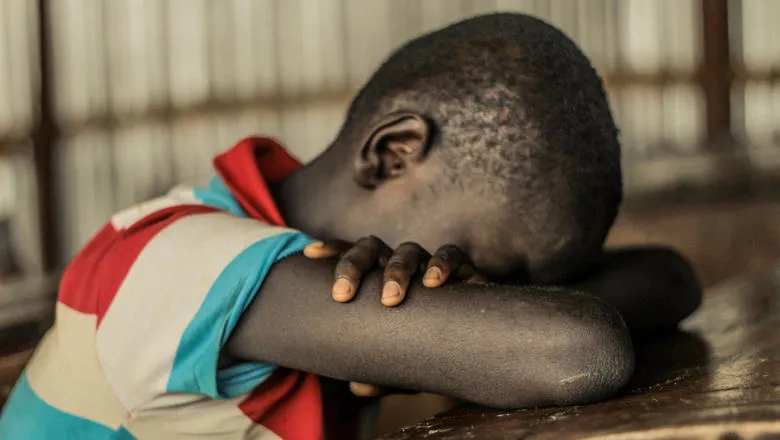New study shows group counselling and one -on-one peacebuilding activities improve mental health in Nigeria

A study of conflict-affected northeastern Nigeria, has found integrating mental health support into peacebuilding initiatives helps alleviate symptoms of depression, anxiety and post-traumatic stress amongst the population.
Mental health support is widely recognised as important for conflict situations because of the short- and long-term effects of the exposure to war and traumatic events.
Nigeria's Borno, and its neighbouring states, have been subject to insurgent violence and terrorism carried out by both Boko Haram and Islamic State since 2009.
The Boko Haram conflict has caused a humanitarian crisis and displacement in North-Eastern Nigeria over the past decade and has been classed as "one of the most pronounced, multifaceted and complex humanitarian crises known to the international community" by the UN.
This new research, jointly undertaken by practitioners and academics, of more than 1500 people shows that after undergoing group counselling and one -on-one peacebuilding activities, depression, stress, anxiety, and PTSD symptoms all decreased significantly.
This programme shows real promise as a model for integrating mental health support with community peacebuilding activities in this conflict-affected region of Africa
Corresponding author and researcher, Dr Natasha Chilambo
The interdisciplinary study looked at a programme called Counselling on Wheels, run by Neem Foundation, which provides mental health and psychosocial support through group counselling, alongside peacebuilding through leadership training, facilitated dialogues between parties, as well as providing information on issues such as gender-based violence.
Clinical outcomes on depression, anxiety and stress were measured with a questionnaire given to participants. Post-traumatic stress was measured by assessing symptoms such as intrusion, avoidance and hypervigilance.
The paper's authors are drawn from King's African Leadership Centre (ALC), King's Institute of Psychology Psychiatry and Neuroscience, Department of War Studies, Department of Engineering, Centre for Conflict and Health Research, as well as King's partner, Neem Foundation.
Director of the ALC, and co-author, Dr. Eka Ikpe said the research "offers an example from West Africa that can be used more widely and highlights how knowledge from this space can be useful more widely" in conflict resolution.
This paper is the most recent output from a collaboration between ALC and the Neem Foundation. Previous outputs include papers on the interactions between poverty and vulnerability to violent extremism within women and youth groups in North Eastern Nigeria; decolonial understandings of intersections between psychiatric and psychological care, peace and security; and gendered logics of why women join Boko Haram in North Eastern Nigeria.
The work of the Neem foundation exemplifies an African led innovation in psychological therapy, which responds to the contextual need. As such it is a rich example of decolonising global mental health. There are many lessons here for health services and for researchers. At KCL, we were fortunate to have this opportunity to partner with NEEM in this evaluation
Professor of Global Mental Health at the Institute of Psychiatry, Psychology and Neuroscience and co-author, Prof. Melanie Abas
Neem data on socio-economic and health factors relating to vulnerability to violent extremism have been important for these studies, some of which are available on the ALC Datalab.
The partnership has also led to research findings being shared with the Deputy Secretary General of the United Nations, Amina Mohammed, and her staff, at a UN Interagency meeting on Mental Health and Psychosocial support in 2021.
Additionally, a joint King's and Neem Foundation event that showcased innovative peacebuilding and mental health through arts interventions including embroidery, theatre, dance and murals, as part of King's Africa week in 2022.
The partnership has contributed to teaching and learning with Neem experts contributing to the ALC's Leadership Exchange and Insights Seminar Series, which is part of the MSc Global Leadership and Peacebuilding. This has enabled two King's ALC Fellows to undertake work placements at the Neem Foundation, Abuja, in 2021 and 2022.
This collaboration has received funding support from the King's Together grant scheme and the Carnegie Corporation of New York.






